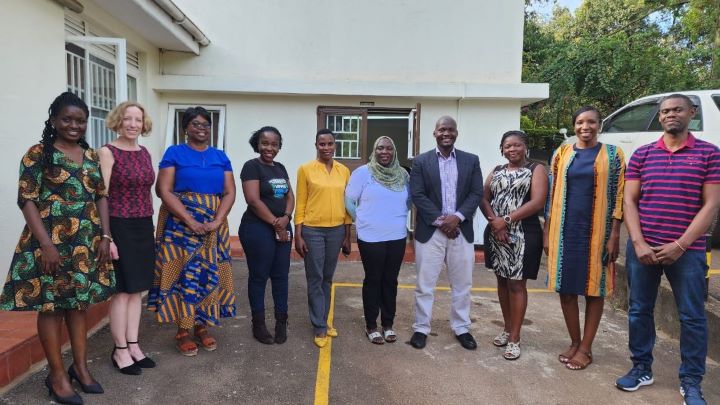Congratulations to Dr. Susan M. Kiene on being awarded three NIH Grants

Congratulations to Dr. Susan M. Kiene for being awarded three new grants this Fall from the National Institutes of Health! Dr. Kiene received two five-year R01 grants for new projects: “Reducing hazardous alcohol use and optimizing treatment as prevention among men living with HIV in risk environments” and “Efficacy testing of a multi-level family planning intervention to increase contraceptive use and reduce unintended pregnancy in low resource settings.” Dr. Kiene was also awarded a 3-year R34 grant to develop a new intervention: “Secondary distribution of HIV self-testing by female sex workers (FSW), pre-exposure prophylaxis (PrEP) starter packs and brief counseling to promote PrEP initiation and persistence among high-risk men in Uganda.” These projects are in collaboration with Makerere University School of Public Health and other university and community partners.
Dr. Kiene, whose PhD training focused on HIV interventions and methodology, began working in Uganda right after completing her degree in 2007. Ugandan physician colleagues who Dr. Kiene met through conferences invited Susan to collaborate on developing HIV research programs in underserved rural areas in Uganda. They started working with rural hospitals and health facilities on timely topics where the health district felt research could have the greatest impact on improving service delivery. This work led to expanding into reproductive health, digital health, and preliminary projects in mental health.
Dr. Kiene feels that these research areas are all important for global health equity. Uganda has one of the highest unmet needs for family planning - the percentage of women who don’t want to become pregnant who aren’t using contraceptive is high, and maternal and infant mortality rates are six times those of the U.S. The reproductive health project, called “Family Health=Family Wealth,” aims to increase access to contraceptives and decrease unintended pregnancies. To do this the team engages communities in dialogue to address norms that discourage family planning, strengthen the delivery of services, and support women and their partners in decision-making for family planning. In the work leading up to this larger study, couples shared the positive impact that the program had on their relationship, communication, decisions around family planning, and perceptions of overall family success. Hearing directly from study participants about the positive impact the research studies and programs have had on their lives means more to Dr. Kiene than just the quantifiable impacts.
The second study, which is evaluating an alcohol and HIV intervention called Kisoboka (It is possible!), grew out of an effort that started 10 years ago when a community-based organization reached out to Dr. Kiene to collaborate on understanding health and poverty issues in fishing communities. Working with community members to understand their concerns around the disproportionate effects of HIV and alcohol in their communities, and their ideas for programs to address these intertwined issues, has guided the research project. Dr. Kiene is excited to see this project grow to where the team is now testing the Kisoboka intervention, which addresses social and structural factors influencing risk behaviors, across multiple areas of the country and working with the Ministry of Health in planning for further scale-up.
The study, “Secondary distribution of HIV self-testing by female sex workers (FSW), PrEP starter packs and brief counseling to promote PrEP initiation and persistence among high-risk men in Uganda,” called Kayungirizi (or Connecting Men with PrEP) for short, focuses on interventions and programs in the context of sex work. The project team is working with community partners and organizations that provide services and support for sex workers. They will develop an intervention using HIV self-tests provided by sex workers as an entry point to generate demand for PrEP to reach people who aren’t being reached via traditional health services. PrEP is a highly effective HIV prevention strategy but many people who can benefit from it are not yet accessing it.
Dr. Kiene makes four trips to Uganda each year. Susan finds that it is important to be “in the field” with the team and understand day-to-day challenges and successes firsthand. Though it’s difficult being someone who loves and finds it important to be present and to have the research studies take place halfway across the globe, Dr. Kiene is physically there as often as possible. Dr. Kiene emphasizes that this research is all about partnerships, collaborating with colleagues in Uganda, and collaborating with communities and stakeholders. Dr. Kiene directs the Building Research Initiatives Advancing Global Health Equity (BRIDGE) research group at SDSU. BRIDGE is focused on partnerships working towards global health equity, and above all serving the needs of communities. Dr. Kiene feels that it is rewarding to see all the hard work and effort come to life and to be able to work with communities to improve health issues.

